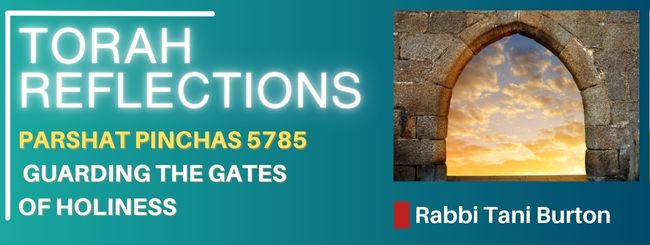בס”דI
Integrating Torah into one’s life through reflection and conversation can be an incredibly fun and engaging experience. It’s a journey of discovery, where ancient wisdom and timeless teachings come to life in our daily experiences. Through reflection, we have the opportunity to dive deep into the rich tapestry of Torah, extracting profound insights and lessons that resonate with our modern lives. The joy lies in the ‘aha’ moments, those instances when a Torah verse or story suddenly connects with our personal challenges, aspirations, and values. And when we engage in conversations about Torah with others, it becomes an interactive exploration, where diverse perspectives and interpretations enhance our understanding. These dialogues often spark excitement and intellectual curiosity, making the learning process both enjoyable and fulfilling. Torah becomes a vibrant and dynamic part of our lives, offering not just guidance but also a source of endless fascination, connection, and growth.
NOTE: Don’t feel obligated to go through every source or answer all the questions—unless you want to. Even one source, or one question will give you plenty of material for discussion and meditation. Enjoy this!
Some thoughts about Parshat Pinchas
“Harass the Midianites and smite them; for they harass you with their schemes, luring you into Peor worship.”
(Numbers 25:17–18)
In this week’s Torah portion, G-d commands Moses not only to defeat the Midianites in battle but also to maintain a mindset of opposition toward them. This is unusual. In most cases, Torah laws of war focus on defense, justice, or survival—not emotional orientation. Yet here the Israelites are specifically told to cultivate an attitude of resistance toward the Midianites because of the spiritual danger they posed.
Why this focus on hatred? Why is Midian different from Egypt, Edom, or other historical enemies of Israel?
The Spiritual Threat Beyond Physical War
The answer lies in the nature of the attack. Midian’s strategy was not military but moral. Their aim was to destroy Israel’s connection to G-d by tempting them into sexual immorality and idol worship. According to tradition, this was orchestrated by Balaam, who realized that Israel could not be cursed or defeated directly. Instead, he advised the Midianites and Moabites to lure the Israelites into corrupt behavior, knowing that this would cause spiritual collapse from within.
This was not merely a cultural difference. It was a deliberate attempt to sever Israel’s relationship with the Source of life itself.
The Slonimer Rebbe explains that kedusha—holiness—begins with setting boundaries in intimate matters. When a society breaks down those boundaries, it erodes faith in G-d. The Midianite tactic was to use immorality as the gateway to idolatry, and once that connection was broken, everything else fell apart.
This is why the Torah commands not just military retaliation but emotional vigilance. To “harass” Midian means to maintain an awareness of who your true spiritual enemies are—not merely people, but ideologies and influences that work to separate humanity from the Divine.
Responsibility: Individual and Cultural
Of course, personal accountability remains central. Every person is responsible for their own actions. The Israelites who fell into idolatry were punished for their own choices. But Torah wisdom also recognizes the power of culture and environment. Societies create conditions that make certain choices easier or harder. If a culture normalizes addiction, promiscuity, violence, or cruelty, individuals living in that culture face greater spiritual risks. That culture shares the blame.
Today, the same question remains relevant. Are the influences around us promoting spiritual growth, dignity, and closeness to G-d—or do they pull us in the opposite direction? Are we too quick to make peace with ideas and behaviors that actually separate us from what matters most?
The Goodness of Closeness to G-d
King David wrote, “As for me, closeness to G-d is good.” (Psalms 73:28) This isn’t just a religious statement—it’s a description of human flourishing. According to Jewish tradition, the purpose of life is to draw closer to G-d by living in alignment with His values. That applies to Jews and to righteous Gentiles alike.
The Derech Hashem (Path of G-d) by Rabbi Moshe Chaim Luzzatto emphasizes that every person is created for this closeness. We achieve it by refining our character, cultivating compassion, seeking justice, and holding fast to morality even when the world around us suggests otherwise.
For Noahides: A Universal Lesson
While the specific commandments about Midian and Israelite nationhood do not apply to Noahides, the core message does. Every human being has a relationship with the Creator. That relationship can be strengthened or weakened by the environments we choose and the influences we allow into our lives.
This does not mean cultivating hate for people. It means learning to recognize when cultural forces—media, trends, ideologies—are toxic to the soul, and having the courage to oppose them. We must not allow our spiritual sensitivities to be dulled by the normalization of what’s harmful.
Now, reflect on the following questions:
- What ideas or cultural trends around me encourage distance from G-d rather than closeness?
- Do I maintain moral boundaries in areas that society pressures me to blur?
- How do I balance compassion for individuals with resistance to harmful ideologies?
- Do I actively cultivate spiritual growth, or do I drift along with the culture?
- What daily practice can I add to strengthen my connection with the Divine?
May we all be blessed to pursue a life of true meaning, to guard our spiritual integrity, and to walk in closeness with G-d, day by day.
Shabbat Shalom!
Shabbat Shalom!
By Rabbi Tani Burton
If you want more questions for contemplation, SEE THE OTHER BLOGS FROM RABBI TANI BURTON ABOUT DE PARSHAT QUESTIONS
© Copyright, all rights reserved. If you enjoyed this article, we encourage you to distribute it further.
Our blogs may contain text/quotes/references/links that include copyright material of Mechon-Mamre.org, Aish.com, Sefaria.org, Chabad.org, and/or AskNoah.org, which we use in accordance with their policies.
